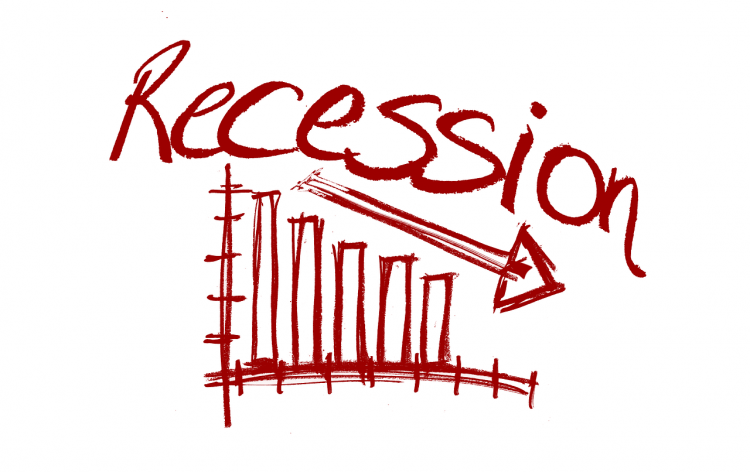Analysts predict massive recession following coronavirus

Analysts at Goldman Sachs, Morgan Stanley and S&P predict a sharp economic downturn, at least in the second quarter of 2020. The reason will be including a slowdown in economic activity, as the governments of the United States and Europe begin to close enterprises, restaurants, schools, shops and urge their citizens to stay at home, Bloomberg reported.
Analysts’ forecasts differ only in how deep and long the recession will be. But some economists have the hope that the economy will begin to recover later this year, which will largely depend on efforts to curb the spread of the Covid-19 virus in the world.
The rating agency S&P predicts a recession in the global economy this year. At the present moment, economists estimate the growth of world GDP in 2020 at only 1-1.5%. Analysts at Morgan Stanley consider the recession around the world to be the main outcome and expect global economic growth to decline to 0.9% this year.
Goldman Sachs believes that global GDP growth will be 1.25%. Both Morgan Stanley and Goldman Sachs said they expect the economy to recover in the second half of the year, but the risks of lowering growth forecasts remain.
What does this mean for markets?
Key US indices hit more than 10% on Monday, March 16. This happened after US President Donald Trump said that the situation with the spread of coronavirus could lead to a recession in the US economy. The fall of US indices became one of the most significant crashes after October 19, 1987.
Investors in financial markets continue to seek equilibrium in the face of constantly deteriorating forecasts for the global economy, which in 2020 will show a sharp slowdown in growth. In terms of quarterly dynamics, it is likely to enter a recession in the first half of the year, said RDIF chief economist Dmitry Polevoy.
Measures to limit the spread of coronavirus in the world are becoming increasingly stringent. Now they have expanded to the direct closure of borders and had a more significant impact on investors than the emergency cut in the Fed rate on Sunday to zero.
This is not surprising, because under the current conditions the measures of the Central Banks are less effective compared to the direct support of the most affected sectors, the RDIF expert believes. Now the central banks should create the most favourable conditions for the functioning of financial markets and banking systems. Many regulators continue to operate in this direction and consistently reduce rates.
Financial markets are now in a state of panic, said Christian Gattiker, head of research at Julius Baer. Central banks go almost all-in in their actions. Investors need patience because recently taken measures to fight against coronavirus (lowering the key rate of the US Federal Reserve, an asset buyback program from the markets) will take at least six to ten days to influence the situation, expert of Julius Baer said.
A measure that can still be applied will be a buyback from the market of bad assets, following the example of the troubled asset buyback program (TARP) in the USA in 2008, Christian Gatiker said. It exceeds the capabilities of many central banks in the world, but it only emphasizes the need for coordinated participation of governments, as was the case in the USA with TARP.


























Comments (0 comment(s))